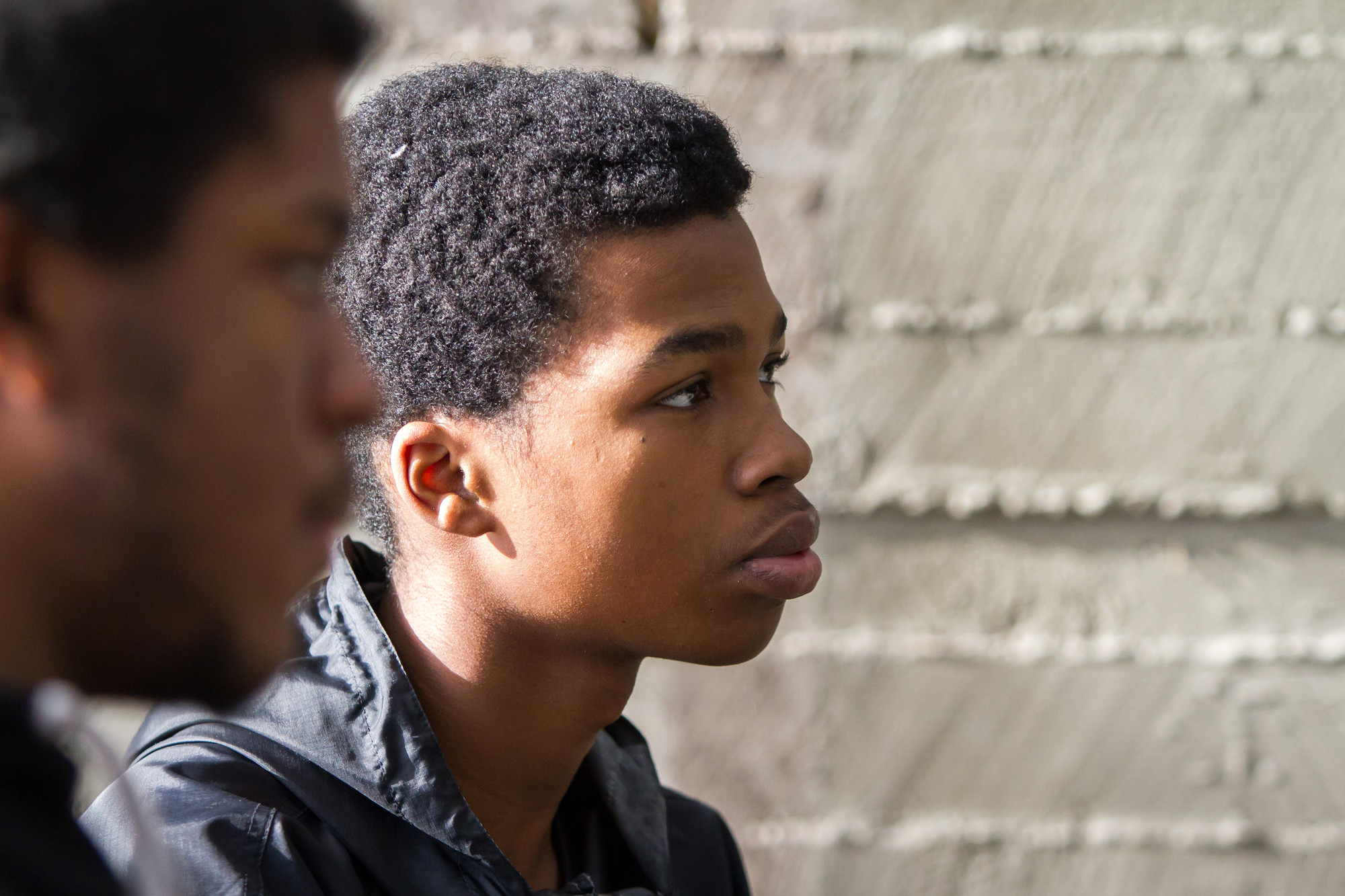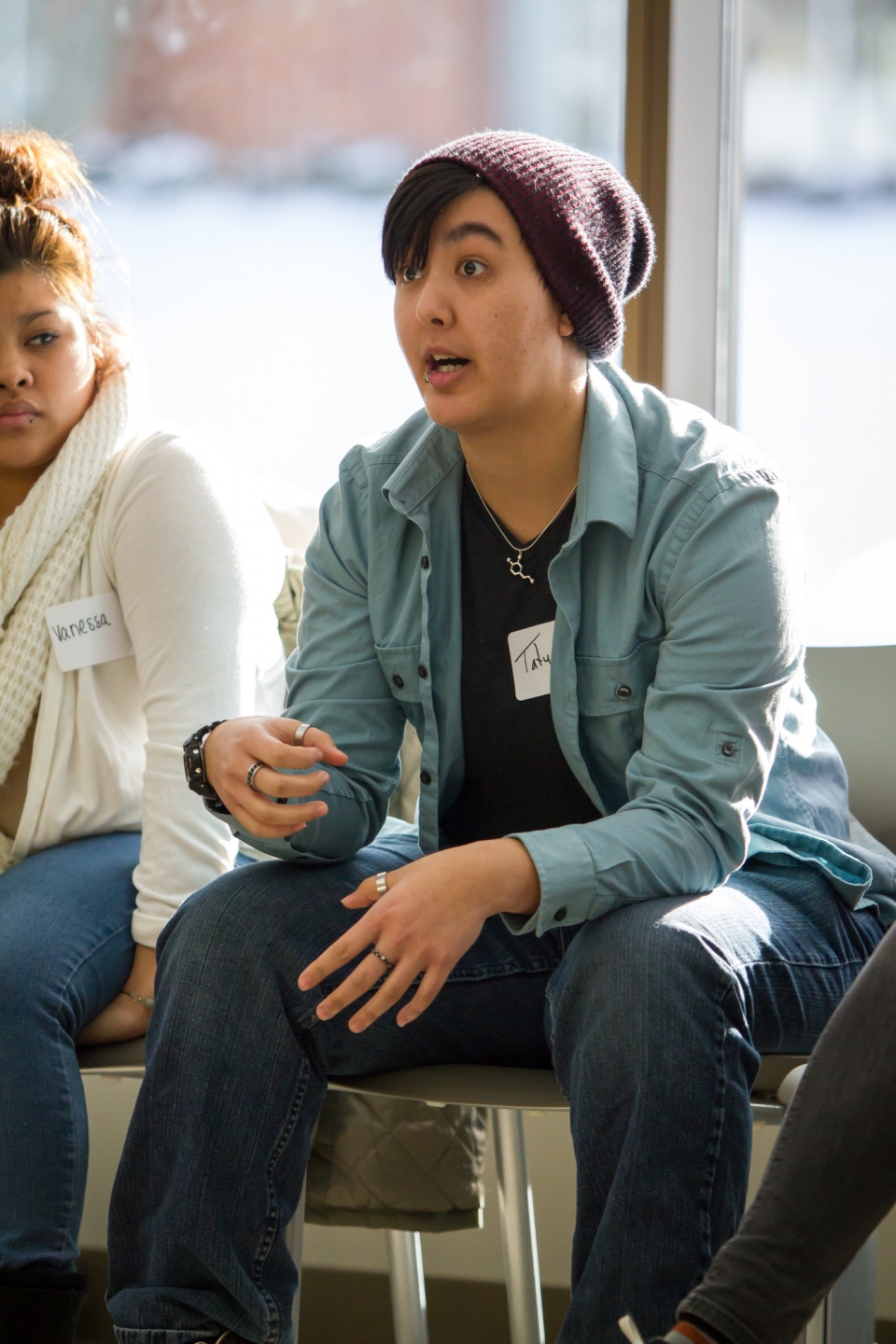
Organizing around political or social issues is a holistic skill that enhances a person's critical lens, self-worth, leadership ability, and emotional and social intelligence. The more that young people are exposed to these values, the more likely they are to identify them as fundamental to a healthy society.
Nearly half—45 percent—of young people in the U.S. belong to low-income families, but poverty is just one of many structural barriers that inhibit the personal growth of young people. Racism, sexism, anti-LGBTQ oppression, and cultural prejudices also put the lives of youth at risk.
However, because many of our social institutions lack cultural competency, youth are forced to choose between adopting ideals that either rationalize their difficulties and accept them, or challenge them.
Engaging youth in community organizing is an alternate means to address these difficulties. This is especially true within historically marginalized populations, whose vulnerability is intensified by systemic challenges.
How do youth who are excluded from educational or economic opportunities gain traction in adult society? If the failure of a social or political ideal is at work here, how can we identify it and begin to change it? A holistic approach to youth organizing is able to do just that.

In the AFSC Freedom School, using a curriculum developed and taught by the People's Institute for Survival and Beyond, we are able to hear from young people about the issues that impact their daily lives. We share our stories about institutional racism, self-determination, and building power to transform our group from young people seeking local change to young people building and maintaining a campaign to effect that change. Using small breakout groups, we identify the common experiences of the participating youth, and visualize different strategies that will address these experiences and place them within a broader social context.
The youth who attend Freedom School are then invited to build on their experience by becoming a part of Youth Undoing Institutional Racism (YUIR), putting them within a network of peer organizers who share the same analysis. Participants of Freedom School and YUIR take part in an interactive exchange of personal experiences, learn the fundamentals of organizing, and share in the accomplishments of other young organizers.
At a time when young people are capturing the political imagination of people of all ages, we seek to place this moment in its historical context, and to establish the value of youth participation in movements for social change.
 Civic engagement through organizing is one way that young people can gain access to what institutional learning has threatened to take away from them. When young people become community organizers, they report an improved sense of confidence and purpose. They become more familiar with their community and gain confidence in defining their relationship to society. This is a fundamental step toward leadership in any field. With this renewed pride, and given the space to express themselves, they are more willing to apply their knowledge and passions in the world.
Civic engagement through organizing is one way that young people can gain access to what institutional learning has threatened to take away from them. When young people become community organizers, they report an improved sense of confidence and purpose. They become more familiar with their community and gain confidence in defining their relationship to society. This is a fundamental step toward leadership in any field. With this renewed pride, and given the space to express themselves, they are more willing to apply their knowledge and passions in the world.
Youth who participate in organizing programs are reminded of their individual worth and the value of belonging to a community. Isolation is replaced by a sense of interconnectedness, and the question of "What can I do?" is replaced with the question of "What can we do?"
Youth organizing also strives to uplift the voices of young people as the leaders of today and tomorrow, not just a resource of the future, or a workforce to be developed. Rather, they are the engines of our society.
To hear from a recent participant in a Freedom School, read “Confronting institutional racism at AFSC Freedom School” by Veneeta D., a 17-year-old high school student in Minnesota.